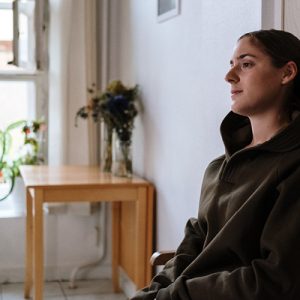Seasonal Affective Disorder
![]()
Also known as “SAD“, Seasonal Affective Disorder is a type of depression that is caused by changes in the season. It is common for those living in the United States to experience SAD in the winter months.
Why Does Seasonal Affective Disorder Occur?
The exact cause of Seasonal Affective Disorder is unknown, however, it’s likely caused by decreases in serotonin and melatonin levels, as well as changes in your circadian rhythm.
Not to mention, during the wintertime, our habits change dramatically – time spent outdoors and sun exposure are likely to decrease which can affect your mood greatly.
What are the Symptoms of Seasonal Affective Disorder?
Symptoms also vary from person to person, and they often start out as being mild but can get worse as the season continues.
Some symptoms include:
- Having feelings of sadness for seemingly no reason
- Losing interest in hobbies
- Low energy
- Feeling hopelessness
How to Manage Seasonal Affective Disorder
Although there is no single cure for SAD, you can remedy it by trying these natural tips:
Bundle up and get outside: Dress for the season by bundling up and try to take a short walk outside every day – preferably before the sun goes down. Not only is exercise good for your physical health, but it will also support your mental well-being.
Vitamins and Supplements: Vitamins B12, Vitamin D, and Melatonin can help support your body with seasonal changes.
- Vitamin B12 is known to help keep your body’s blood and nerve cells healthy and is also known for providing energy.
- Vitamin D is a nutrient we naturally get when exposed to the sun’s rays and helps the body absorb and retain calcium and phosphorus.
- Melatonin can aid you in falling asleep and staying asleep and aid to regulate your sleep schedule. If you’re trying to wake up earlier to make up for the sun going down so early in the winter, give this supplement a try.
If you think you’re experiencing Seasonal Affective Disorder, or if you’re struggling with daily tasks or going to work because of depression, be sure to discuss it with your Doctor or Healthcare Practitioner.
If you are experiencing thoughts of harm or suicide, call the 24-hour suicide prevention line at 988 for help.
If you’re looking for a fresh perspective on health care with a Naturopathic Physician, give us a call at (860) 829-0707, or drop by our office at 1263 Berlin Turnpike Unit B
Berlin, Connecticut.
Sources: John Hopkins Medicine, Mayo Clinic












